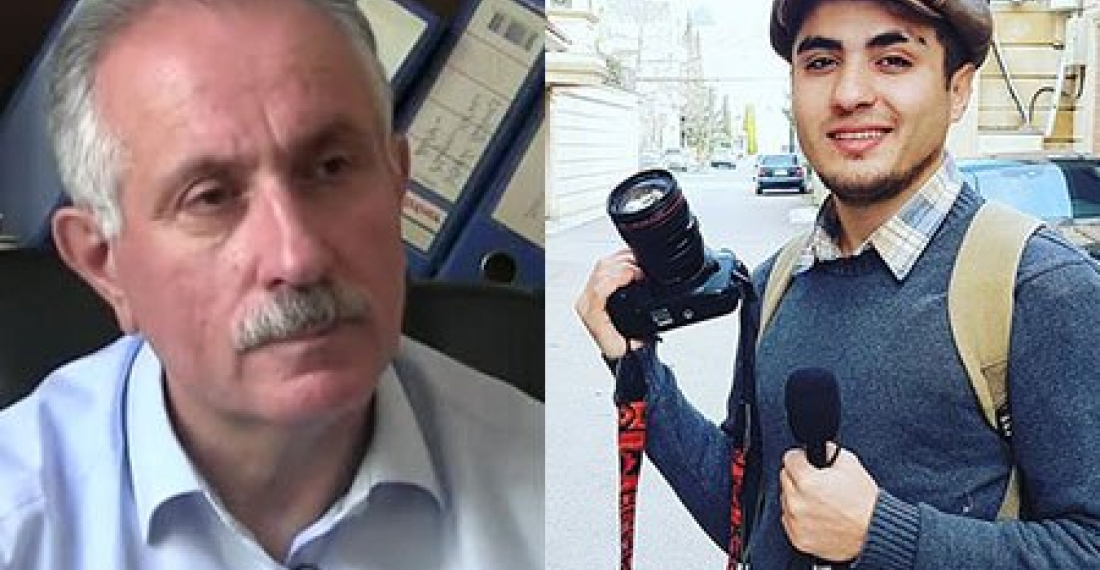The arrest in Baku of the "Doyen" of South Caucasus journalists has fueled speculation about what is going on in Azerbaijan. In this op-ed for commonspace.eu Dennis Sammut discusses the recent arrest of veteran Azerbaijani journalist Mehman Alieyev.
The authorities in Azerbaijan in the last days moved in against the last significant independent media outlet in the country, the Turan News Agency, arresting and charging its veteran Managing Director, Mehman Aliyev with tax evasion. He has now been sent to three months pre-trail detention.
Mehman Aliyev was one of the first independent journalists to emerge in the South Caucasus in the late 1980s, establishing the Turan news Agency in 1990 - an outlet that has covered the regions trails and tribulations since. His skills, composure and general gravitas earned him earlier-on the title of "Doyen" of South Caucasus journalists. This explains the outcry that followed his arrest, and why even the government-friendly "National Press Council of Azerbaijan" felt it necessary to call on President Ilham Aliyev to intervene in the case.
This is not the first time that the Azerbaijani government has shown an authoritarian streak. Journalists and media outlets have been a favourite target. Another Mehman - the young photo-journalist Mehman Husseynov - was imprisoned earlier this year, after making claims that he had been violently abused whilst under police interrogation. The two Mehmans are very different from each other, yet between them they cover the whole spectrum of what can be called independent opinion in Azerbaijan - stretching across generations, style, and even in the means they use to communicate their message. Their imprisonment closes the circle but it does not square it.
In explaining what is going on in Azerbaijan there are three schools of thought.
The first, spearheaded by most of the country's opposition forces old and new, insists that the country is a dictatorship led by a blood-thirsty and corrupt leadership. They have been out in force on social media in the last days criticising the west for not calling a spade a spade, and for not cutting off relations with the Azerbaijani leadership.
The second, made up of more moderate elements, takes a more nuanced approach. It says that opinion within the Azerbaijani leadership is much more divided than it looks, and that President Ilham Aliyev sits on top of a fractured political system that pulls the country in different directions, with him having as a necessity to balance between these different interest to survive. This, they say, explains the contradictions in Baku's actions. Whilst the President and his wife push a modernisation agenda with a balanced foreign policy, others are trying to hang on to outdated models of political and economic governance. They think more western engagement with Azerbaijan, not less, is necessary.
A third school insists that the situation is much more complicated because behind some of Baku's actions, even if not all, is an unprecedented level of Russian pressure. The reconstruction of the "Russian world", (to say Soviet Union is politically incorrect even in Moscow these days), is the top priority of President Putin at the moment. Most of the post-Soviet states are now either firmly in, (Armenia, Belarus and Kazakhstan are considered in this category despite their obvious discomfort), or firmly out, (the Baltic States and Georgia). In Ukraine, the battle is being fought out in front of the whole world on the streets of the towns and villages of the Donbass.
Azerbaijan however is the one place where Putin feels he is closest to making progress, but where victory has proven elusive. The Russians are playing all the cards at their disposal in Azerbaijan, short of sending in the Army. Russian pressure on President Aliyev is huge. The "Party of Russia" within the Azerbaijani leadership remains significant, even though Ilham Aliyev, and his father Heidar before him, have carefully and cleverly balanced it finely. However, for this third school, the reasons for the arrest of Mehman Aliyev is most likely Russian pressure on Azerbaijan to clamp down on all signs of dissent and independent thinking, since this threatens Moscow's own domestic model as well as its expansionist agenda. It was now Mehman Aliyev's time to be fed to the bears.
Ironically, it is therefore quite possible that the arrest of the two Mehmans is perceived, outside Azerbaijan at least, not as a sign of President's Aliyev government toughness, but rather of its weakness.
Dennis Sammut is a long-time analyst of the South Caucasus and wider Eurasia. He contributed this op-ed to commonspace.eu dennis@links-dar.org
photo collage: Mehman Alieyev and Mehman Husseynov






